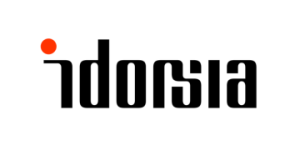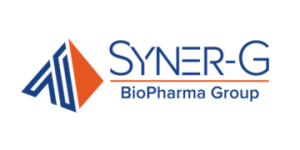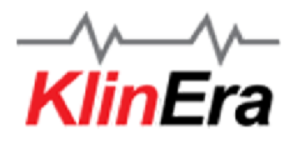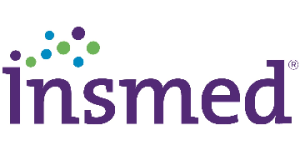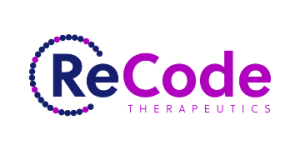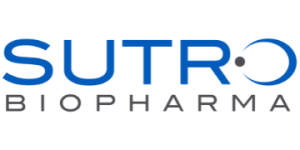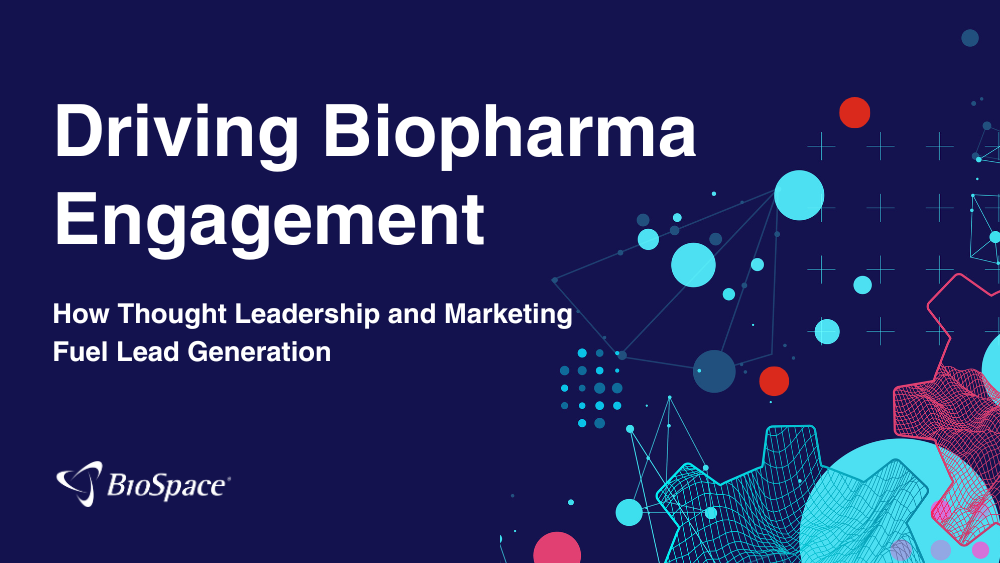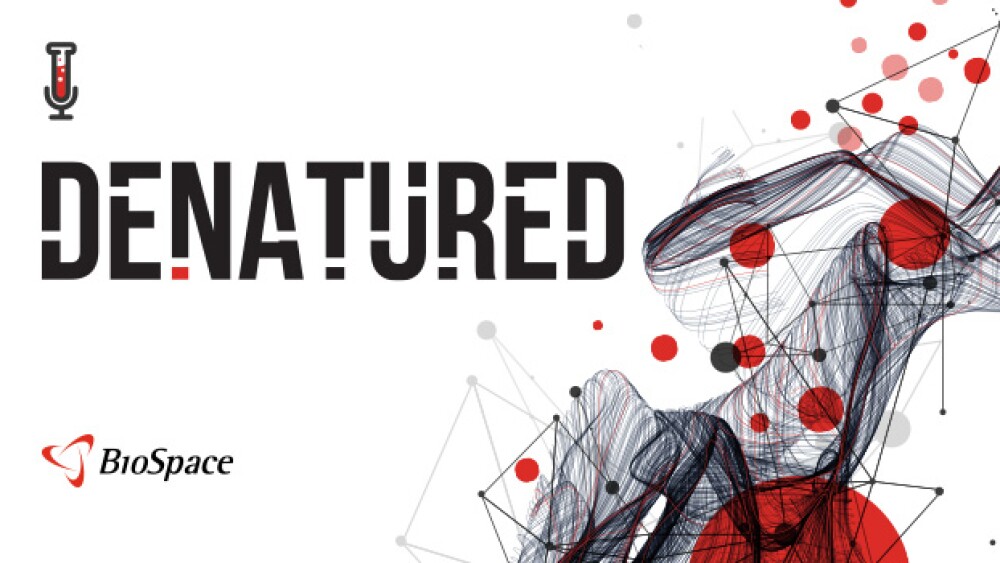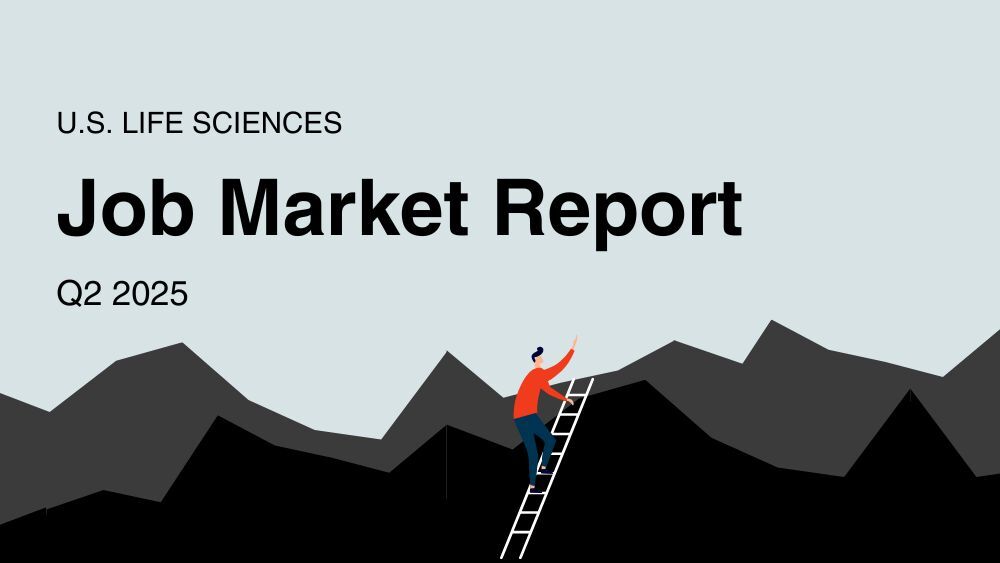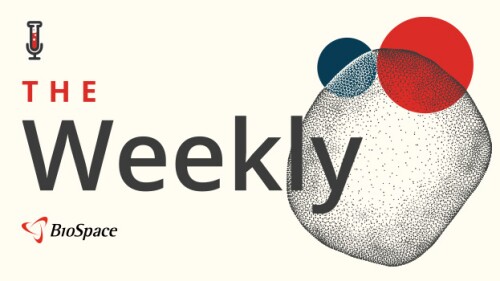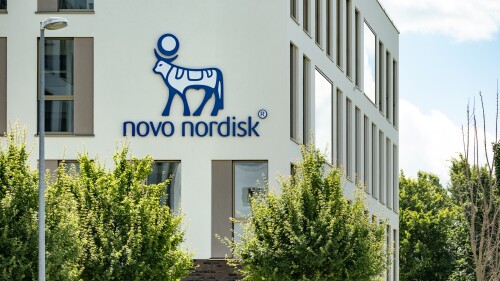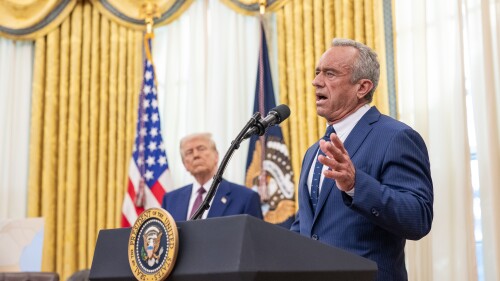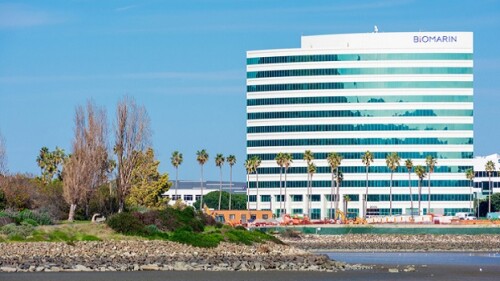Otsuka and Lundbeck’s data are insufficient to establish significant efficacy of Rexulti plus sertraline in PTSD, according to the FDA’s outside experts.
In light of recent patient deaths, the FDA has also revoked its platform designation for Sarepta’s AAVrh74 technology. The designation, granted last month, was the first of its kind to be announced publicly.
Roche and Genentech were unable to sufficiently demonstrate the benefit of using Columvi in an earlier treatment setting for DLBCL in a U.S. population, according to the FDA.
The rollercoaster week for Sarepta Therapeutics continued, with shares of the embattled gene therapy-turned-siRNA biotech down 37% Friday afternoon as media outlets reported FDA plans to request a stop to all shipments of the Duchenne muscular dystrophy therapy Elevidys following a third patient death linked to the underlying platform.
Despite the failure, BMS remains “encouraged” by Reblozyl’s clinical activity in myelofibrosis-associated anemia and will approach regulators to discuss potential submissions for this indication, for which few treatment options exist.
The panelists flagged safety concerns with Blenrep and GSK’s failure to optimize its dosing regimen for the antibody-drug conjugate in multiple myeloma.
FEATURED STORIES
Ahead of Robert F. Kennedy Jr.’s confirmation hearings, experts—and RFK’s own family—expressed concerns about his vaccine-related views, though the same experts are largely unfazed by the level of power he and Marty Makary could ultimately wield over the FDA.
After two years characterized by layoffs, pipeline reorganizations, FDA delays and clinical holds, Novavax CEO John Jacobs says the company is at a pivot point.
Riding recent momentum in the Duchenne muscular dystrophy space, Capricor Therapeutics, Wave Life Sciences, Regenxbio and more aim to deliver the next wave of progress with near-term data and regulatory milestones.
Achondroplasia, which affects around one in 20,000 babies, has just one approved treatment: BioMarin’s Voxzogo. However, new investigational treatments are vying to compete in the area.
The Japanese pharma had one asset rejected by the FDA and withdrew a regulatory application for another, but already this month the company has secured an approval for AstraZeneca-partnered Dato-DXd, to be marketed as Datroway.
While the last decade has brought considerable progress for patients with DMD, substantial unmet need remains. Several companies including Wave, Dyne and Avidity are looking to answer the call with investigational therapies targeting greater efficacy and broader reach.
FROM BIOSPACE INSIGHTS
Establishing trust through thought leadership is no longer optional in today’s cautious biopharma market. Learn how strategic insights and targeted outreach can turn awareness into high-converting leads.
LATEST PODCASTS
BioSpace’s Lori Ellis and Chantal Dresner bring live updates from the first day of #DIA2024 in San Diego.
This week, an FDA adcomm unanimously voted for the approval of Eli Lilly’s anti-amyloid antibody as thousands of layoffs continue to rattle the industry.
How do we ensure strategic vision and thoughtful implementation when pursuing new opportunities in science and technology? Our guests discuss challenges around reimbursement, intellectual property, change management and the critical nature of early engagement.
Job Trends
Nona Biosciences announced today that it has entered into a license agreement with AstraZeneca (LSE/STO/Nasdaq: AZN) for preclinical monoclonal antibodies that will be used to create targeted therapies in oncology.
Subscribe to Genepool
Subscribe to BioSpace’s flagship publication including top headlines, special editions and life sciences’ most important breaking news
SPECIAL EDITIONS
BioSpace did a deep dive into biopharma female executives who navigated difficult markets to lead their companies to high-value exits.
BioSpace data show biopharma professionals faced increased competition for fewer employment opportunities during the second quarter of 2025, with increased pressure from further layoffs.
BioSpace did a deep dive into executive pay, examining the highest compensation packages, pay ratios and golden parachutes—what a CEO would get paid to leave.
DEALS
-
Asceneuron, which develops small molecules targeting tau protein aggregation, plans to use the funds to advance its Alzheimer’s disease asset into Phase II.
-
Akebia Therapeutics on Thursday said it regained full U.S. rights to its chronic kidney disease anemia drug Vafseo, which the biotech has priced at around $15,500 per year.
-
In its second antibody-drug conjugate licensing agreement this year, Ipsen has secured exclusive rights to Foreseen Biotechnology’s FS001, which targets a novel antigen expressed across a range of solid tumors.
-
Eli Lilly becomes the latest to make a major investment in immunology and inflammation, while antibody-drug conjugate biopharma Myricx Bio nets a large Series A round and new research highlights the potential and possible risks of GLP-1s.
-
After pulling its ALS drug Relyvrio from the market, Amylyx Pharmaceuticals is looking to target the GLP-1 space with the purchase of Eiger BioPharmaceuticals’ avexitide, which has been studied for the treatment of hyperinsulinemic hypoglycemia.
WEIGHT LOSS
-
While Amgen’s third-quarter financial results on Wednesday were “somewhat uneventful,” investors continue to be focused on the highly anticipated MariTide Phase II results slated for late 2024, according to BMO Capital Markets analyst Evan Seigerman.
-
Wednesday’s update to the regulator’s drug shortage database is good news for Novo Nordisk, which has struggled to keep up with demand for the blockbuster GLP-1 drugs.
-
Eli Lilly’s blockbuster weight loss and diabetes drugs missed analysts’ expectations by 18% in the third quarter, which were negatively impacted by inventory stocking in the wholesaler channel. The company’s shares fell more than 13% in trading on Wednesday morning.
-
The group of like-named companies that include Novo Holdings and Novo Nordisk—the two tied to a multibillion-dollar buyout of Catalent currently under FTC review—ultimately send proceeds to the Novo Nordisk Foundation, one of the world’s largest charitable foundations.
-
Following an end-of-Phase II meeting with the FDA in the fourth quarter, Viking Therapeutics plans to push its subcutaneous obesity therapy VK2735 into late-stage development and to start a Phase II trial for an oral formulation.
POLICY
-
Under Friday’s final ruling anti-obesity medications for weight-loss will remain ineligible for Medicare coverage.
-
Kennedy, a long-time opponent of vaccines, stated that the MMR vaccine is “the most effective way” to combat the measles outbreak, which has already claimed the lives of two children in the U.S.
-
Pharma’s reprieve from Donald Trump’s tariffs is expected to be temporary, with Leerink analysts anticipating possible sector-specific duties “in the next month or so.”
-
With the recently announced layoffs of 3,500 FDA staffers and exits of branch directors Patrizia Cavazzoni and Peter Marks, there could be a wealth of talent available to biopharma companies. Does this pose an ethical quandary? It depends on who you ask.
-
Trump has repeatedly called April 2 “Liberation Day,” alluding to a more sweeping and aggressive set of tariffs. Leerink Partners analysts said that the risks from Trump’s tariffs on the biopharma industry are “underappreciated.”
Like any field, there are upsides and downsides to working in biotech, and educating yourself can help you make an informed decision if you’re considering a career in this industry.
Learn the best tips, tricks, and practices to help yourself to get the first job after college life sciences industry right out of college in our comprehensive guide.
Discover the most in-demand pharma qualifications and how to use them to score your dream job in our comprehensive guide.
Instead of going through pharma job search websites, you should create a powerful LinkedIn profile. Check out Biospace to find out the benefits of having a strong LinkedIn Profile.
Despite the massive financing from venture capitalists that poured into Massachusetts in 2021, Bay State biopharma companies are struggling to find enough talent to fill the number of available jobs.
The use of body language during interview can ensure a good impression. Kinesics includes the use of posture, facial expression, movement, and gestures to communicate nonverbally.
HOTBEDS
REPORTS
In this Employment Outlook report, BioSpace explores current workforce sentiment, job activity trends and the prospective job and hiring outlook for 2025, particularly as it compares to the previous year.
BioSpace’s third report on diversity, equity, inclusion and belonging in life sciences examines dramatic shifts in attitude around diversity initiatives.
CANCER
-
Annemarie Hanekamp has overseen some of the most transformative changes in oncology over her years in Big Pharma. Now, she will oversee BioNTech’s transition from a COVID-19 vaccine maker to an “end-to-end organizational oncology powerhouse.”
-
JPM25 is in full swing as several pharma powerhouses—including Merck, Lilly and Amgen—detail their strategies for growth in the coming year.
-
Biopharma executives were busy Monday, striking high-value deals and providing updates on cancer, obesity and vaccine pipelines.
-
The positive trial results could help Regeneron cushion the blow of its disappointing fourth-quarter sales for Eylea, which exceeded the consensus by a modest 1% and are bogged down by the slow conversion of patients to the high-dose formulation.
-
The multi-billion deal, in which Eli Lilly will acquire Scorpion Therapeutics’ STX-478 program, is a shot in the arm for PI3K treatments, which have had a mixed history over the past few years.
NEUROSCIENCE
-
Sage Therapeutics discontinued development of its lead candidate dalzanemdor after a third clinical failure, leading analysts to question the biotech’s future profitability.
-
After previously failing studies in Parkinson’s and Alzheimer’s, dalzanemdor’s latest stumble in Huntington’s disease has pushed Sage Therapeutics to pull the plug on the NMDA receptor modulator.
-
Trump fingers Robert F. Kennedy Jr. to lead the HHS, lupus and ATTR-CM dominate headlines this week, bluebird bio has a cash gap to leap and RegenxBio eyes Sarepta in Duchenne muscular dystrophy.
-
Phase II results for Cybin’s psilocin therapy showed remission rates of 71%, but just eight patients made it to the 12-month milestone.
-
With the failure of AbbVie’s emraclidine in two mid-stage trials, Bristol Myers Squibb’s Cobenfy is ‘sole muscarinic winner.’
CELL AND GENE THERAPY
-
Last month, Vertex said sickle cell patients had not yet received infusions of its gene therapy Casgevy. That’s now changed, as the company races with bluebird bio’s Lyfgenia.
-
As it nears a crucial FDA action date for its transthyretin amyloid cardiomyopathy candidate, BridgeBio focuses on its late-stage pipeline.
-
No patients have received Casgevy, CRISPR Therapeutics and Vertex Pharmeceuticals’ recently approved sickle cell gene therapy. Experts weigh in on the path to profit for the treatment and the therapeutic class in general.
-
BioMarin executives sought to calm an anxious investor base Wednesday with a public address and pledge to achieve a nearly 50% bump in annual revenue by 2027. But analysts were left wanting.
-
Proceeds from the oversubscribed financing will be used to advance ArsenalBio’s lead programs, which include a handful of solid tumor cell therapy candidates.









































